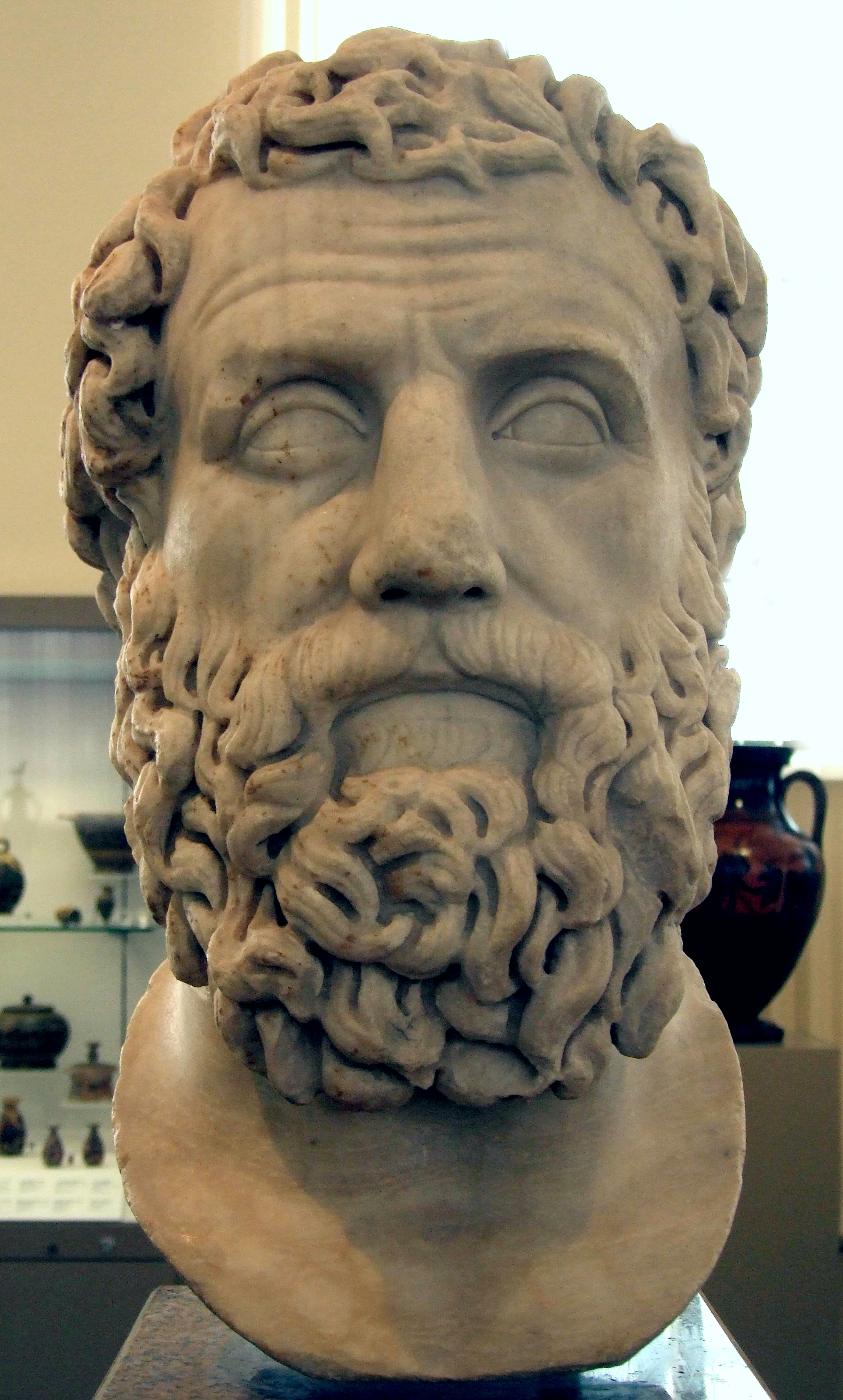Arquíloco [1] fue un poeta lírico griego arcaico originario de la isla de Paros.
Fue hijo de un noble llamado Telesicles y de una esclava llamada Enipo. Poeta y mercenario, sus escritos nos han llegado de forma fragmentada, y no existe consenso respecto a las fechas exactas en las que vivió y la autoría de algunas de las obras que se le atribuyen. Su vida se desarrolla a lo largo de la primera mitad del siglo VII a. C. Nació en Paros, una pequeña isla jonia del mar Egeo, famosa por su mármol, y donde el culto a Deméter, relacionado con la poesía yámbica, era muy importante. Arquíloco, además de cantar al dios Dioniso, está ligado a la introducción de su culto en su isla. Participó en la colonización de Tasos, en busca de territorio agrícola, una localización muy próxima a las minas auríferas del litoral de Tracia.
Arquíloco se nos presenta como poeta soldado, alguien que vivía de la guerra mientras cultivaba la poesía.
Soy un servidor del soberano Enialio
conocedor del amable don de las Musas.
De mi lanza depende el pan que como, de mi lanza
el vino de Ismaro. Apoyado en mi lanza bebo.
Pasó su vida entre las luchas políticas y las rivalidades de Paros. Según Critias por ese motivo se arruinó económicamente, contrajo numerosas enemistades, y empobrecido marchó a Tasos. Terminó sus días durante la defensa de Paros en la guerra contra Naxos, isla cercana.
Tras su muerte disfrutó en Paros de gran popularidad y se erigió en su honor un monumento funerario en el que se ha encontrado una larga inscripción perteneciente al siglo IV a. C. en la que, a modo de cuento popular, se explica la iniciación del poeta en los ritos dionisiacos, y la profecía que presenció su padre anunciando la posterior fama de su hijo.
Se hizo famoso en la Antigüedad y pasó a la posteridad como personaje polémico a través de Plutarco. Sus obras fueron igualmente polémicas, tanto por sus ataques virulentos contra variados personajes y su habilidad para crearse enemistades, como por contradecir con algunos de sus versos los valores bélicos de la época. Nietzsche lo referencia como el artista "dionisíaco" lírico de entre los poetas de la antigüedad, contrapuesto a Homero, el artista "apolíneo" épico. Nietzsche reivindica a Arquíloco quien, erróneamente, ha sido llamado en la Modernidad como "artista subjetivo", es decir, "mal artista"; pero, a quien la división entre "lo objetivo" y "lo subjetivo" resulta "improcedente en estética"[2] .
Un sayo ostenta hoy el brillante escudo que abandoné a pesar mío junto a un florecido arbusto.
Pero salvé la vida. ¿Qué me interesa ese escudo?
Peor para él. Uno mejor me consigo.[3]
Prometido con Neobula, el padre de aquélla, Licambes, otorgó a su hija a alguien que suponía un mejor partido, a lo que Arquíloco respondió con composiciones ofensivas que se recogen en el llamado Papiro de Colonia, en el que acusaba a Neobula de ser una mujer sin moral y relataba con detalles un encuentro sexual con su hermana menor. Los versos habrían resultado tan hirientes que, según la leyenda, llevaron al suicidio a Licambes y a sus hijas.
✵
680 a.C. – 645 a.C.
